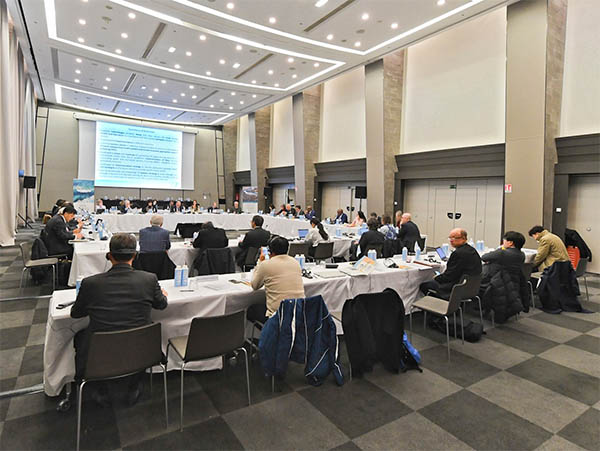SIC ICWC HAS BECOME A MEMBER OF THE WORLD WATER COUNCIL’S BOARD OF GOVERNORS
The 9th General Assembly of the World Water Council was convened in Paris on the 10th of December and elected the Board of Governors for the 2023-2025 mandate. SIC ICWC has been elected to the Board with 164 votes. The Center has become the only organization from the Eastern Europe, Caucasus and Central Asia region to serve in this governance body.

The World Water Council (WWC) is an international multi-stakeholder platform organization, co-organizer of the World Water Forum, whose mission is to mobilize action on critical water issues at all levels, including the highest decision-making level, by engaging people in debate and challenging conventional thinking on water security. The Council focuses on the political dimensions of water security, sustainability, and resilience.
The World Water Council has about 400 member organizations, which come from 60 countries. The ultimate authority of the World Water Council is the General Assembly of Members. The General Assembly meets at least once every three years and elects and appoints a maximum of 35 members to the Board of Governors who oversee the general operations of the Council in between the General Assemblies. To ensure a balanced representation of the various stakeholders within the governing body of the Council, members are classified into five different colleges: College 1: Intergovernmental institutions; College 2: Governments and government authorities; College 3: Enterprises and facilities; College 4: Civil society organizations and water user associations; College 5: Professional associations and academic institutions. Each college is guaranteed with a minimum number of four seats on the Board of Governors. SIC ICWC has been elected from College 1.
While serving on the Board of Governors, SIC ICWC is going to increase representation and voice of the Central Asian region on the world water arena as one of the regions subjected to water and climate risks, push more ‘solutions into practice’ approach in the World Water Forums and other activities of the Council, and use more extensively the tools of water diplomacy and transboundary water cooperation.
|